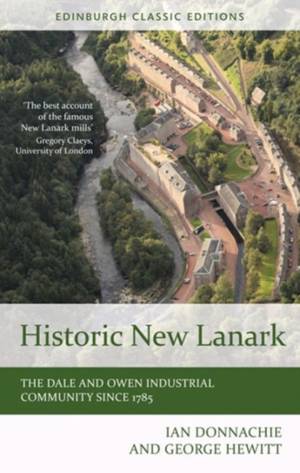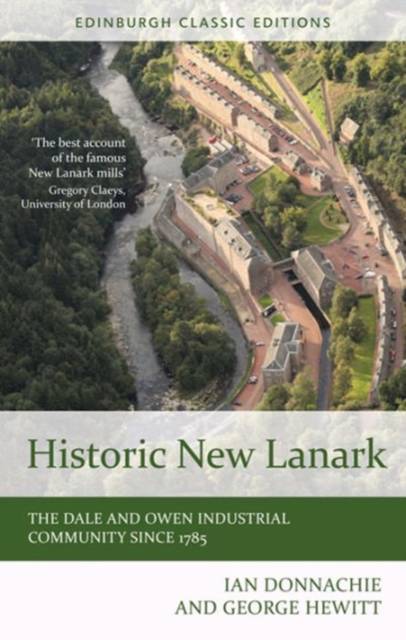
- Retrait gratuit dans votre magasin Club
- 7.000.000 titres dans notre catalogue
- Payer en toute sécurité
- Toujours un magasin près de chez vous
- Retrait gratuit dans votre magasin Club
- 7.000.000 titres dans notre catalogue
- Payer en toute sécurité
- Toujours un magasin près de chez vous
Description
This updated edition, now published in the Edinburgh Classic Editions series, is the definitive account of the most famous of Scotland's pioneering social projects.
New Lanark, the former cotton spinning village, is internationally renowned for pioneering technology and social change in the Industrial Revolution. This book traces the community's history from its conception as a centre of mass production in 1785 to its present day standing as a World Heritage Site.
Beginning with New Lanark's early development under its creator, the banker and textile entrepreneur David Dale (1739-1806), it looks at the social conditions of the mainly migrant workforce recruited to the village, and especially at the use of child labour from the cities. Detailing Robert Owen's social and educational experiments at New Lanark (1813-1825), it describes how the community became a showpiece around the world for its "New System" of society. After Owen's departure for New Harmony in Indiana, the book charts the relative decline of the mills under a succession of owners -- the Walkers, the Birkmyres, and the Gourock Ropework Company.
The book concludes with the story of closure and long term restoration as a living village, major tourist attraction and inscription as a World Heritage Site. It is a fascinating read for anyone interested in heritage, conservation, social and community history.
Ian Donnachie, Emeritus Professor of History, The Open University is widely published, including a biography of Robert Owen, the social reformer. George Hewitt formerly lectured in Glasgow and also taught for the OU and the University of Dundee. Dr Hewitt is author of a major study of sixteenth century Scottish politics and society. They have worked on several joint projects including a Companion to Scottish History in several updated and extended editions.
Spécifications
Parties prenantes
- Auteur(s) :
- Editeur:
Contenu
- Nombre de pages :
- 288
- Langue:
- Anglais
- Collection :
Caractéristiques
- EAN:
- 9781474407816
- Date de parution :
- 13-11-15
- Format:
- Livre broché
- Format numérique:
- Trade paperback (VS)
- Dimensions :
- 137 mm x 213 mm
- Poids :
- 430 g







